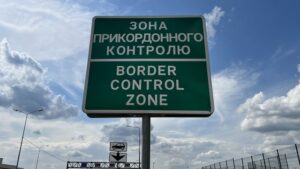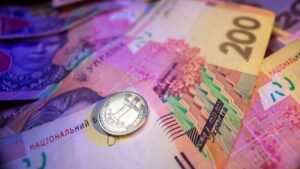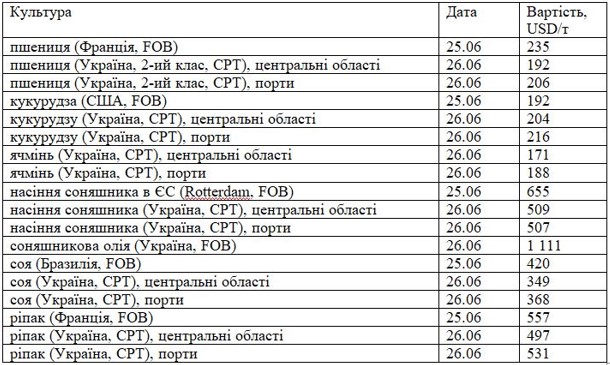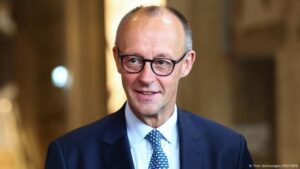
The State Customs Service of Ukraine (SCC) has granted authorized economic operator (AEO) status with the right to apply simplifications to 100 companies, according to a press release from the SCC.
“This milestone symbolizes not only a quantitative achievement, but also qualitative progress in the development of transparent and effective cooperation between customs and business, which is an important step towards Ukraine’s integration into the European economic space,” the agency explained on its Telegram channel on Monday.
It is noted that among the Ukrainian companies that have received AEO status are manufacturers, exporters, importers, freight forwarders, and other participants in foreign economic activity (FEA).
It is noted that five companies already have both types of authorizations: “granting the right to apply simplifications” (AEO-C) and “confirming security and reliability” (AEO-B).
The GTS reminded that AEO status is a recognized mark of trust that confirms the reliability, security, and high standards of companies in the international supply chain. It gives enterprises the right to simplified customs procedures, saves time and reduces logistics costs, and, consequently, increases the competitiveness of Ukrainian businesses in the global market. For Ukraine, this means strengthening its economic potential, increasing exports, and attracting new trading partners.
For more information on AEO status and authorization to apply for simplifications, please visit https://customs.gov.ua/deiaki-pitannia-funktsionuvannia-avtorizovanikh-ekonomichnikh-operatoriv
Previously, round tables were dedicated to customs reform, where event organizer and moderator Maksim Urakin stated that the State Customs Service provides up to 40% of Ukraine’s state budget revenues, with these figures remaining stable over the past few years. That is why customs reforms are so important for the country.

Passenger traffic across Ukraine’s border from August 16 to 22 amounted to 768,000, which is 1.3% less than the record level for wartime in the previous two weeks, according to data from the State Border Service on Facebook.
According to the data, while in the previous four weeks the number of people entering the country exceeded the number of people leaving by 15,000-32,000, with the approach of the new school year, the numbers evened out: the number of people leaving increased from 378,000 to 385,000, while the number of people entering decreased from 400,000 to 383,000.
The number of vehicles that passed through checkpoints this week increased from 144,000 to 145,000, while the flow of vehicles carrying humanitarian cargo decreased from 524 to 449.
This Sunday, as of 9:00 a.m., according to the State Border Service, the longest queue of 55 cars and 4 buses was at the Ustyluh checkpoint on the border with Poland. Forty cars and four buses were waiting to cross the border at the Krakivets checkpoint, while 19 buses had accumulated at the Shehyni checkpoint.
On the border with Hungary, the longest queue of 45 cars was at the Kosyno crossing, while at the Luzhanka checkpoint there were 30 cars, at Dzvinkove – 20, and at Tisa – 15.
At the border with Slovakia, 30 and 20 cars were waiting for inspection at the Uzhhorod and Malyi Berezny checkpoints, respectively, while at the border with Romania, there was only a queue of 30 cars at the Dyakove checkpoint.
The total number of people crossing the border this year is 4.2% higher than last year: during the same seven days last year, 370,000 people left Ukraine and 367,000 entered, and the flow of cars was also lower – 133,000.
As reported, from May 10, 2022, the outflow of refugees from Ukraine, which began with the start of the war, was replaced by an influx that lasted until September 23, 2022, and amounted to 409,000 people. However, since the end of September, possibly influenced by news of mobilization in Russia and “pseudo-referendums” in the occupied territories, followed by massive shelling of energy infrastructure, the number of those leaving exceeded the number of those entering. In total, from the end of September 2022 to the first anniversary of the full-scale war, it reached 223,000 people.
During the second year of the full-scale war, the number of border crossings to leave Ukraine, according to the State Border Service, exceeded the number of crossings to enter by 25,000, during the third year by 187,000, and since the beginning of the fourth year by 116,000, of which 80,000 were seasonal since the beginning of summer.
As Deputy Minister of Economy Serhiy Sobolev noted in early March 2023, the return of every 100,000 Ukrainians home results in a 0.5% increase in GDP.
In its July inflation report, the National Bank of Ukraine worsened its migration forecast: while in April it expected a net inflow of 0.2 million people to Ukraine in 2026, it now forecasts a net outflow of 0.2 million, which corresponds to this year’s estimate of net outflow. “Net returns will only begin in 2027 (about 0.1 million people, compared to 0.5 million in the previous forecast),” the NBU added. In absolute terms, the National Bank estimates the number of migrants currently remaining abroad at about 5.8 million.
According to updated UNHCR data, the number of Ukrainian refugees in Europe as of July 31, 2025, was estimated at 5.115 million (as of July 1 – 5.083 million), and worldwide – at 5.676 million (5.643 million).
In Ukraine itself, according to the latest UN data for April this year, there are 3.757 million internally displaced persons (IDPs), compared to 3.669 million at the end of last year.

Ukrainian banks earned UAH 95.50 billion in net profit in January-July 2025, which is 1.2% less than in the same period of 2024, according to the National Bank of Ukraine.
According to its data, net interest income increased by 14.3% to UAH 151.74 billion, and net commission income increased by 12% to UAH 35.41 billion.
At the same time, the result from the revaluation of government bonds and currency purchase and sale transactions decreased by 28.1% to UAH 17.24 billion, while total administrative expenses increased by 20.8% to UAH 72.24 billion, and other operating expenses by 15.5% to UAH 11.92 billion.
In addition, while banks increased their provisions by only UAH 0.38 billion in the first seven months of last year, they increased them by UAH 4.93 billion in the first seven months of this year.
In July, the net profit of Ukrainian banks amounted to UAH 14.42 billion, which is 1.9% worse than in July 2024. Although net interest income grew by 14.9% to UAH 22.84 billion and net commission income by 18.3% to UAH 5.30 billion, the result from the revaluation of domestic government bonds and foreign currency purchase and sale transactions fell threefold to UAH 1.77 billion.
Therefore, even the release of reserves in July in the amount of UAH 0.24 billion could not prevent a decrease in net profit compared to July last year.
In the overall structure of banks’ income and expenses for the first seven months of this year, the share of interest income increased to 70.8% from 68.7% last year, while the share of interest expenses decreased to 33.6% from 34.5%.
The share of commission income also increased in January-July this year to 21.3% from 21.0% in January-July last year, with the share of commission expenses decreasing to 14.5% from 15%.
At the same time, the share of total administrative expenses increased to 31.2% from 29.9%.
As reported, solvent banks in Ukraine received UAH 103.69 billion in net profit in 2024, which is 24.6% more than in 2023.
Last year, as in 2023, the corporate income tax rate for banks was increased retroactively to 50% for the entire year in the fall, while this year it is 25%.

Let’s track the prices as of the end of June 2025 for the main grain and oil crops exported from Ukraine, as well as fluctuations in their value on the world market.
The price of wheat (France, FOB) was 235 USD/t, according to market operators on June 25, 2025. This is 1 USD less than last week, 6 USD more than the previous month, and 3 USD more than the previous year. The price of wheat (Ukraine, 2nd grade, CPT) for the central regions (June 26) was 192 USD/t. This figure remained unchanged during the week, decreased by 15 USD over the month, and increased by 45 USD over the year. For ports, the amount was 206 USD/t, which is 3 USD less than a week ago and 18 USD less than a month ago, but 19 USD more than a year ago.
According to the International Grains Council, the price of corn (USA, FOB) as of June 25 was 192 USD/t. This is USD 8 less per week and USD 16 less per month, but USD 3 more per year. The price of corn (Ukraine, CPT) on June 26 for the central regions was USD 204/t. It did not change during the week, but decreased by USD 4 per month and increased by USD 73 per year. For ports, it was 216 USD/t (also unchanged from the previous week, down 16 USD from the previous month, and up 3 USD from 2024).
“Let’s pay attention to the forecast for global corn production in 2025/26 MY. It has been reduced by 1 million tons to 1,276 million tons, compared to 1,225 million tons in the current season. However, the forecast for global consumption has been increased by 1 million tons to 1,269 million tons. Therefore, the estimate of final corn stocks has been lowered by 2 million tons (to 282 million tons). This will exceed the current season’s figure by 7 million tons,” said grain market analyst Alexander Korenitsyn.
As for the price of barley (France, FOB) as of June 25, it stood at USD 216/t. This is USD 6 less than a week ago and USD 5 less than a month ago, but USD 11 more than a year ago. Let’s analyze the price changes for barley (Ukraine, CPT). As of June 26, the price was (central regions) – 171 USD/t. This is 3 USD more per week and 46 USD more per year, but 30 USD less per month. For ports, the price is 188 USD/t, which is 6 USD more per week, 40 USD more per year, but 2 USD less per month.
Prices for major grain and oil crops exported from Ukraine, end of June 2025

According to Oleksandr Serhiyovych Korenitsyn, the price of sunflower seeds in the EU (Rotterdam, FOB) as of June 25 was USD 655/t. The changes are as follows: +5 USD per week, -14 USD per month, and +170 USD per year. The price of sunflower seeds (Ukraine, CPT) on June 26 (central regions) was 509 USD/t. This is 8 USD less per week and 16 USD less per month, but 109 USD was added to the price per year. For ports, the cost is 507 USD/t. The price fell by 6 USD per week and rose by 9 USD per month and 148 USD per year. A ton of sunflower oil (Ukraine, FOB) costs 1,111 USD as of June 26.
The cost increased by $8 per week and by the same amount per month.
The calculation of price fluctuations for soybeans is based on its cost as of June 25 (Brazil, FOB) – $420/t. It decreased by $10 per week and by $16 per year, but increased by $15 per month.
“The price of soybeans (Ukraine, CPT) in the central regions was 349 USD/t on June 26, which is 8 USD less than a week ago, 4 USD less than a month ago, and 23 USD less than in 2024. The price for ports is 368 USD/t. It decreased by 14 USD, 13 USD, and 10 USD over the week, month, and year, respectively,” said analyst Alexander Korenitsyn.
The price of rapeseed (France, FOB) on June 25 was $557/t. Price changes: down $9 per week, up $7 per month, and up $55 per year. The cost of rapeseed (Ukraine, CPT) on June 26 for central regions is 497 USD/t (up 106 USD per year), for ports – 531 USD/t (up 110 USD per year).
agricultural sector, COST, DOLLAR, EXPORT, HARVEST, Oleksandr Korenitsyn, PORT, PRICE, SOYBEANS

German Chancellor Friedrich Merz has called for a fundamental rethink of the welfare system, saying the current model is no longer financially sustainable, according to The Telegraph.
“The welfare state as we know it today can no longer be financed from what we can afford economically,” Merz said on Saturday at a state party conference.
According to the publication, social security spending in Germany exceeded a record €47 billion in 2024 and continues to rise amid an aging population and rising unemployment. At the same time, Germany’s public debt stands at 62.5% of GDP, one of the lowest levels in the eurozone.
Merz acknowledged that he was dissatisfied with the government’s performance so far and called for joint action to take difficult decisions: “Let’s show together that change and reform are possible.”
“His position on limiting social spending is likely to meet resistance from coalition partners in the Social Democratic Party of Germany (SPD), who traditionally see themselves as defenders of the welfare state,” the report said.
Separately, Merz called on the SPD and the Christian Democratic Union to form a joint “anti-immigration and business-friendly” coalition policy. Both parties advocate tougher rules for the detention of migrants prior to deportation and an expansion of the list of safe countries for return.